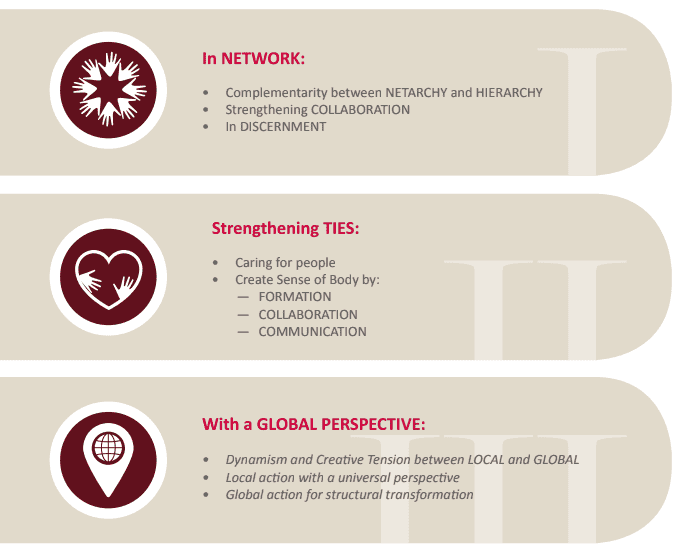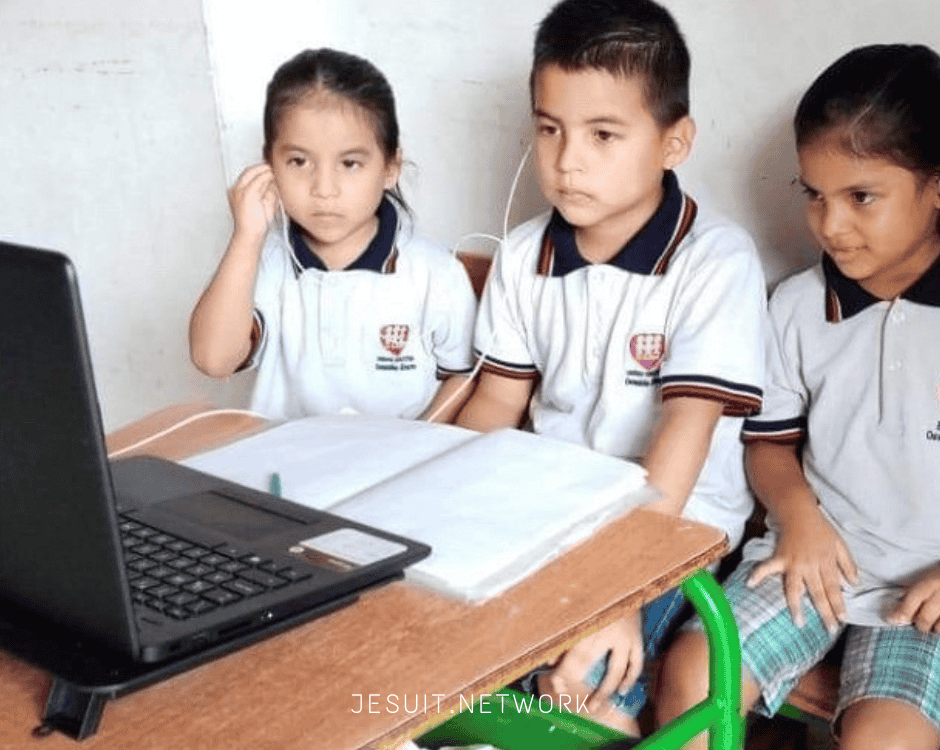This website uses cookies so that we can provide you with the best user experience possible. Cookie information is stored in your browser and performs functions such as recognising you when you return to our website and helping our team to understand which sections of the website you find most interesting and useful.
Fe y Alegría identifies its challenges as a global movement
The progressive global focus of the International Federation brings new challenges and tensions to the movement that are being analyzed by a specific commission in charge of projecting the global action framework for the future.
Last year Fe y Alegría renewed its Global Plan of Federative Priorities PGPF 2021-2025 in which both the missionary and strategic levels of the movement are renewed, recreating its way of proceeding and federative policies in the face of the new international challenges. In this new stage, the International Federation of Fe y Alegría maintains its priority axes, which are: Popular Education, Working on the New Frontiers of Exclusion, Guaranteeing Sustainability and influencing Public Policies.
As in previous plans, the Federation identifies and promotes joint initiatives that “emerge from the countries” and are of local action but with a global projection, flexible and with a specific timeframe. For this new plan until 2025, the initiatives proposed are: Pedagogical Training, Educational Quality, Evaluation and Impact Measurement, Integral Ecology and Panamazonia, Training for Work, Youth Network, Global Citizenship, Gender, Inclusive Education, Migration, Identity and Spirituality, and Early Childhood Care.

At the same time that the Federation renewed its Priorities Plan, in which the global dimension is highlighted as a distinctive and specific element, a Global Strategy Commission was created with the intention of formulating a Global Action Framework to help propose new strategies and structures that truly favor the Federation’s global action. This commission has been working for two years now in coordination with the various governing bodies and federative participation. One of the most interesting conversations promoted by this commission has been around the challenges that this new missionary dimension is putting before the movement when it comes to putting into practice what we conceptualize as a global strategy. If we really want to deploy a global strategy as a Federation, the commission in its successive dialogues has detected some tensions that Fe y Alegría has to help deploy:
1. Tension between the international and the meta-national level
There is a new mission level in areas such as public advocacy in the right to quality education or the promotion of global citizenship, which are part of a meta-national strategy that must have a clear structure, functions and federative processes, as it aims at a specific mission with a final intentionality differentiated from the countries’ own strategy (local) or even from the joint strategy between countries (international, networks).
2. Tension between the Role of the Federation and Functional Autonomy
While it is clear that the autonomy of the members is one of the essentials of the movement, we have learned that we have to put it in dialogue with the federative dimension in order to respond to our network vocation and that the deployment of the federation can go beyond the agendas of the countries.
3. Tension between the Global and Regional dimension
The progressive inclusion of new M&A in Europe, Africa and Asia has made federative management more complex, not only in its linguistic and cultural dimension, but also at the level of the mix of regional and global strategies. We need structures that favor the space, attention and resources necessary for global dynamics, without being detrimental to the dynamics of regions such as Latin America, Africa or Asia, wherever these are possible.
4. Tension between Jesuit identity and openness to other charisms
One of the characteristics of the federation is the diversity of charisms and identities proper to the movement, which have to be combined with a Jesuit leadership and governance that increasingly has to understand how the deployment of this network of works that are not necessarily its own is its own. This tension is part of our own identity as an open and diverse movement that sometimes generates differences in vocabulary and approach with respect to exclusively Jesuit educational proposals and networks.
5. Tension between growth and participation
The growing volume of countries, teams and strategies, as a result of the natural evolution of the federation and the dynamics of global thinking and internationalization, is making the empowerment and participation of the different actors at the national level increasingly complex. We must ensure that the federation’s organizational development at the global level and its international expansion is balanced with adequate structures of dialogue and participation so that it is the joint discernment and official governance structures that lead and ensure the movement’s directionality in the future.
6. Tension between our Catholic identity and the frontiers of the Church
The progressive internationalization of the movement and its incardination in the frontiers of the educational mission of the Church is taking us more and more into contexts where the target population is not Catholic. This trend, added to the progressive secularization of traditionally Christian societies, raises questions about the ways of expressing the Faith as an essential part of our identity, decalogue and mission.





